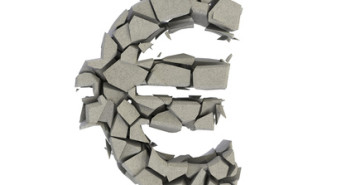While the start to the trading week might be a little more subdued than normal given that both Britain and the US are observing national holidays, there was plenty of action happening over the weekend with anti-Eurozone parties garnering strong support in the European Parliamentary Elections. The elections for the 751-seat legislature that happen once every five years began with the Eurosceptic party in the UK, the UKIP, securing roughly 28% of the total votes, marking the first time since 1910 that neither the Conservatives or Labour parties won a national election. The jolt to European politics continued in France, where the extreme nationalists, the Front National, battered President Francois Hollande’s Socialists by a wide margin of 26% to 14%. The shocking win by Marine Le Pen and the Front Nationals was referenced by the French Prime Minister as “an earthquake†and caused Francois Hollande to announce there would be an emergency meeting held first thing on Monday morning.
Although pro-EU parties are forecast to remain the biggest groups in parliament, and will most likely cobble together some sort of grand coalition to prevent legislative deadlock, the rise in support for the Eurosceptic parties acts as a warning shot to the status-quo mentality in the zone, with their members clearly becoming disengaged as a result of high levels of unemployment and lack of economic prospects.  While the pro-EU leaders will definitely be left scratching their heads in trying to figure out where the derailment occurred, the near-term consequences of the weekend’s results could be felt swiftly in areas such as France, Britain, and Greece, where insurgent parties have declared national victory, potentially leading to fresh elections in their respective regions.
Staying with European politics, the conflict-embroiled Ukraine has a new leader, with Petro Poroshenko winning 54% of the vote to take the helm of a region that its teetering on the verge of civil war. The pro-European businessman with a confections empire managed to vault past the 50% threshold to win the election outright without having to conduct a second round, and in his victory speech said that his first steps during the presidential term will be focused on stopping the war and bringing peace to the region. At first blush the prospects of Poroshenko managing to unite his divided country seem promising, given his remarks Ukraine will not seek to join Nato (an issue that has split the population) and that he is committed to starting a dialog with Russia to forge a new treaty around the security of the Ukrainian region. The Kremlin has also softened its stance towards Kiev somewhat, with Putin announcing over the weekend that Russia would work with the new government after the election, something they had refused to do after attesting the old government came to power through an armed coup.
Despite the rising support for Eurosceptic parties in the parliamentary elections over the weekend, the positive outcome of the Ukrainian election and reassuring words from Mario Draghi in a speech from Spain have French and German equities on strong footing midway through their trading day.  Speaking at the ECB’s annual forum on Central Banking, Mario Draghi warned that there was a risk of deflation in the common-currency bloc under certain adverse scenarios, but calmed market participants by reiterating the central bank had a number of tools in its toolkit in order to combat an environment where price developments or inflation expectations undershoot the ECB’s target for too long. The EUR was unfazed by the comments from Draghi as there wasn’t much market participants hadn’t heard before, leaving EURUSD to trade sideways in the low to mid 1.36s.
Looking towards FX markets in general, trading conditions are icy cold in terms of activity given two major financial hubs are both taking long weekends, keeping the major currency pairs locked within fairly narrow ranges overnight. The Loonie is trading essentially where it left off on Friday, with the USDCAD pair changing hands in the high-1.08s. Equity futures in the US are still trading despite physical stocks taking a break from changing ownership, with S&P futures slightly positive after what many would call a successful election in Ukraine.
With a relatively quiet day on the economic release front owing to the Memorial Day long weekend in the United States, we look towards tomorrow’s release of Durable Goods orders for the month of April. The headline reading is expected to exhibit some weakness due to slow activity from Boeing over the period, although the proxy for business investment (non-defense, ex-air) is expected to come in with a relatively healthy gain of 0.2% after the blazing 2.9% that was registered in March. While the headline reading for April on durable goods orders won’t have a tremendous impact on the bounce-back in GDP growth expected in Q2, the confidence telegraphed from business investment during the month will be an important driver for growth estimates. In addition, with Q1 GDP expected to be revised lower to -0.5% when the second estimate is released on Thursday, a strong durable goods number tomorrow would lend some much needed support to slumping treasury yields.
Further reading:
anti-Eurozone parties
EURUSD: Remains Weak And Vulnerable



